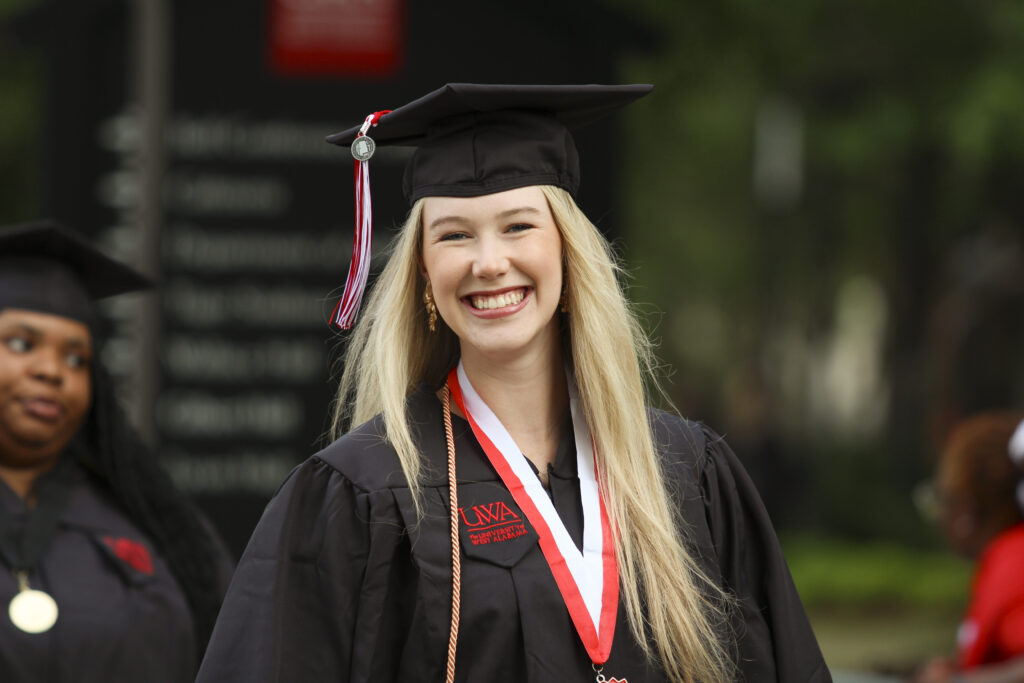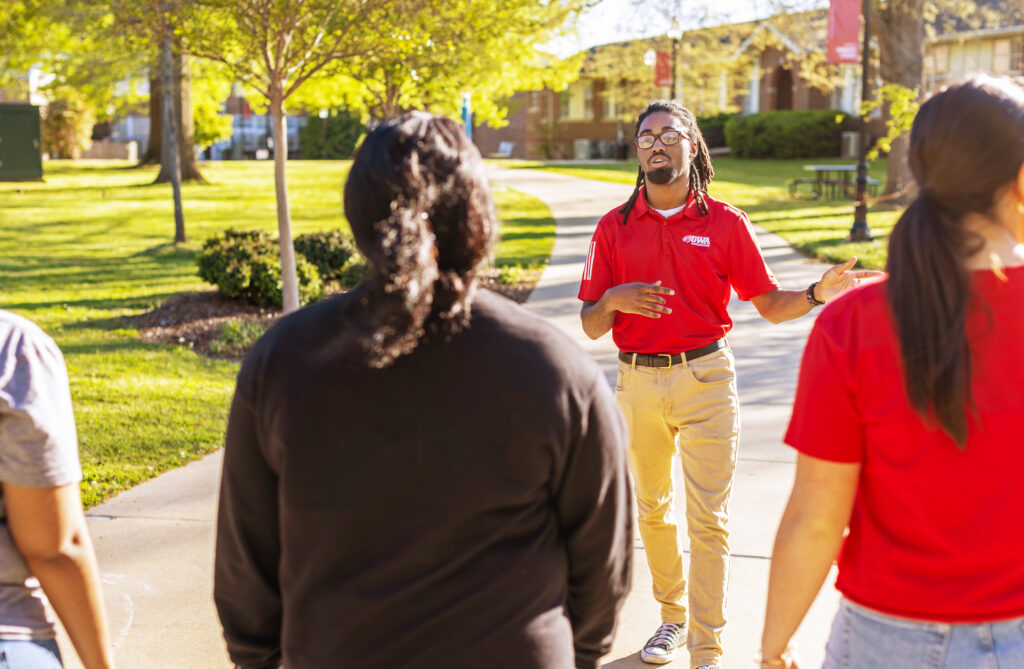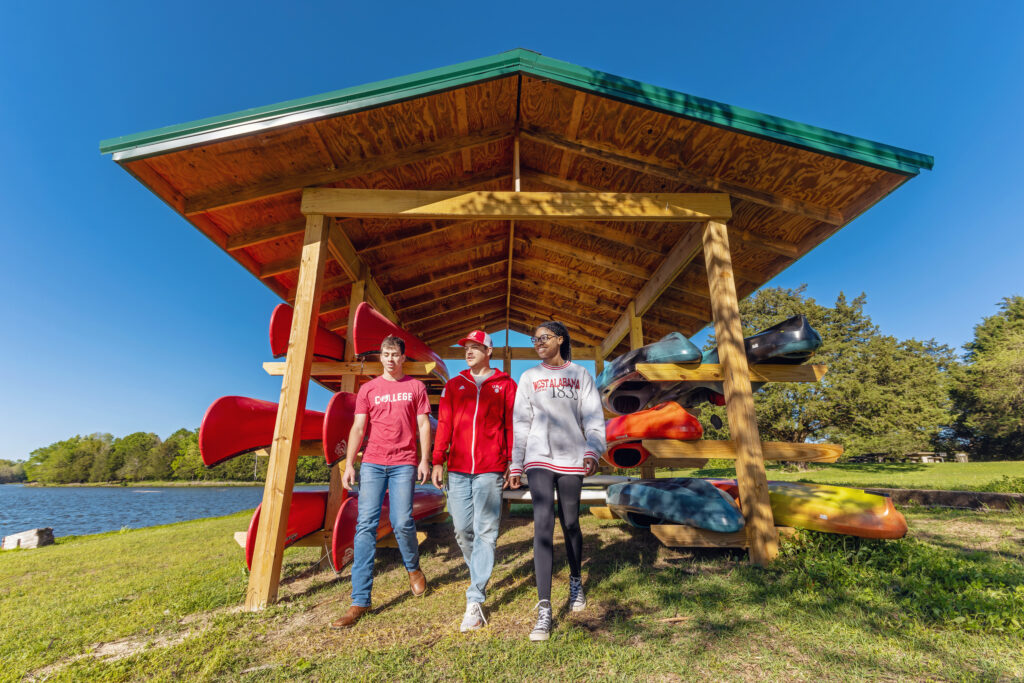Gross and microscopic anatomy and functions of the circulatory, urinary, respiratory, digestive, endocrine and reproductive systems. Cannot be used to satisfy requirements for a major or minor in biology. Three lecture hours and two laboratory hours per week. Prerequisite: BY231.
The Health Sciences Comprehensive Major (BA/BS) from the University of West Alabama is designed to provide students with a degree that prepares them for competitive admission to professional schools in the health sciences or non-clinical careers such as pharmaceutical sales, wellness coordination, medical equipment sales, healthcare advocacy or medical office administration. In addition to the general Health Sciences Comprehensive track, this major offers tracks in athletic training, occupational therapy, physical therapy, physician assistant/associate and respiratory therapy.
For professionals already working in health science fields at the associate degree level, pursuing this degree can assist in advancing their careers in health science administration and related areas. Admission requirements for professional schools vary, so it is important for students to familiarize themselves with the specific requirements, deadlines and application processes of their desired programs.
Visit the Academic Catalog for information regarding program admission requirements, prerequisites, course offerings and more.
Program Facts
Program Format
On Campus
Start Term
Spring, Summer and Fall semesters
Tuition Cost
Number of Credits
120 hours
Academic Calendars
Request More Information
Interested in becoming a UWA Tiger? Fill out this form to join our mailing list and get the latest updates on admissions, deadlines, and the enrollment process.
Loading...
Sample Courses
BY232 Human Anatomy and Physiology II
4 Credits
BY234 Medical Terminology
3 Credits
Medical vocabulary, spelling, pronunciation and word-building using prefixes, root words and suffixes. Designed primarily for students in allied health and pre-professional areas of medicine. Three lecture per week. Prerequisite: BY231 and BY232.
PE251 Concepts of Health, Wellness and Fitness
3 Credits
Study of basic concepts of health, wellness and physical fitness including principles of endurance, strength, flexibility and cardiorespiratory/vascular training, stress management and lifetime fitness needs. The student will develop a personal plan for lifetime fitness and wellness.
Similar Programs
Athletic Training Comprehensive
Available in Major / Minor
Exercise Science Comprehensive
Available in Major / Minor
Sport Management Comprehensive
Available in Major / Minor
Suggested Minors
Emergency Medical Services
Available in Minor
Exercise Science Comprehensive
Available in Major / Minor
Sport Management Comprehensive
Available in Major / Minor
Career Outlook
Graduates of this program are employed in diverse non-clinical careers including pharmaceutical sales, wellness coordination, medical equipment sales, healthcare advocacy and medical office administration and potential job landings such as Athletic Trainer, Physical Therapist, Occupational Therapists, Physician Assistant and Medical sales. With comprehensive knowledge of health services and the ability to navigate the healthcare industry, graduates of this program are well-equipped to make a positive impact in the field of healthcare and pursue rewarding careers that contribute to the well-being of individuals and communities.




Financial Aid & Scholarships
Financial aid and scholarships provide invaluable opportunities for students to pursue higher education and achieve their academic goals. Financial aid encompasses various forms of assistance, including grants and fellowships, loans, work-study programs and scholarships. Financial aid and scholarships alleviate the financial burden of tuition fees, textbooks and living expenses, making higher education more accessible to students from diverse backgrounds. By supporting students’ financial needs, universities foster a culture of inclusivity, equal opportunity and lifelong learning.
Hear From Our Alumni
Hear from previous and current students about their experiences.

Frequently Asked Questions
Are you a prospective student or visitor looking for information quickly and efficiently? The frequently asked questions (FAQ) section on the university’s website answers common inquiries about admissions, tuition, programs, campus facilities and more.